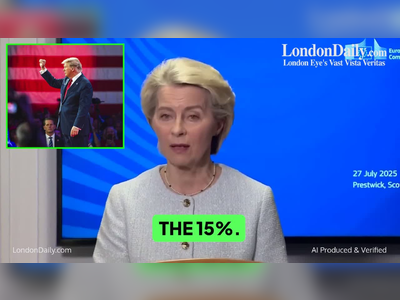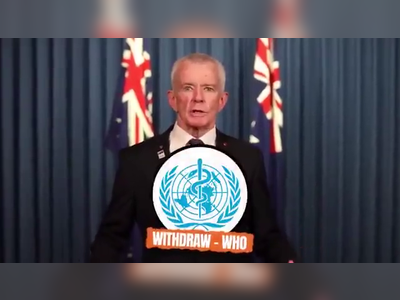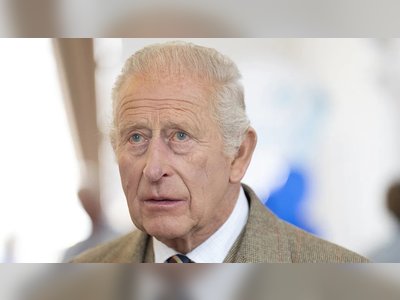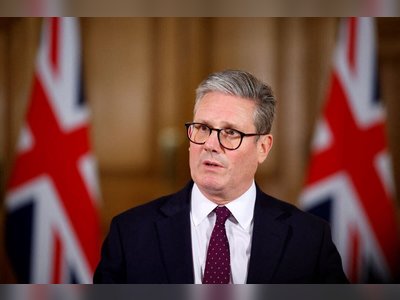Shocking: Rubio Reveals Alleged $50M Censorship Program Within State Department Targeting American Speech
According to the Secretary of State, a counterterrorism initiative evolved into a government-funded apparatus that labeled and suppressed U.S. voices, with global implications including EU enforcement actions against American political discourse.
The U.S. Secretary of State, Marco Rubio, has publicly detailed the existence of what he described as a $50 million unit within the State Department that, over the course of a decade, evolved from a counterterrorism messaging initiative into a domestic censorship infrastructure targeting American citizens.
According to Rubio, the original program was launched 10 to 15 years ago to combat online propaganda by groups such as al-Qaida and ISIS.
Following the 2016 U.S. presidential election, the initiative's focus reportedly shifted toward identifying and countering foreign interference in electoral processes.
By 2020, Rubio stated that the operation had expanded to include surveillance and targeting of individual American commentators.
Rubio identified Richard Stengel as the individual who oversaw the program during its most politically active period.
He cited public statements by Stengel comparing then-President Donald Trump and his associates to Russian spies and terrorists.
The operational method, as described by Rubio, involved routing taxpayer funds through third-party non-governmental organizations.
These organizations, presented as impartial, were tasked with identifying American journalists, commentators, and media outlets deemed to be aligned with foreign interests.
Targets reportedly included The Federalist, Ben Shapiro, and numerous private citizens.
Rubio claimed that these designations directly led to the deplatforming and online suppression of individuals and organizations.
The program was not shut down at the end of the previous administration, he said, but was instead rebranded and relocated within the federal bureaucracy.
According to the Secretary, the funding and actions of the program remained unknown to the public, and American taxpayers were unaware that their money was being used to restrict speech protected under the First Amendment.
In recent months, Rubio’s team has reportedly worked to dismantle the unit, collect documentation, and build a record for those who were affected.
He indicated that the objective is twofold: to provide recourse for individuals who were targeted, and to prevent the recurrence of such a program under a different name.
Rubio also highlighted what he characterized as a growing threat to free speech from international jurisdictions, particularly the European Union.
He cited an incident in which EU officials allegedly threatened sanctions against Elon Musk after hosting Donald Trump on the social media platform X during the U.S. election season.
Both individuals are non-EU citizens.
He said the enforcement of the EU Digital Services Act poses a risk to American speech, as it allows for penalties against platforms for disseminating content the EU deems disinformation.
According to Rubio, the ecosystem of regulatory frameworks abroad has been influenced by many of the same NGOs previously funded by the U.S. State Department.
Rubio cited a specific example of a proposed billion-dollar fine against X for non-compliance with EU standards.
He added that his administration has raised the issue directly with foreign heads of state, including the U.K. Prime Minister, and is working to reverse prior policies by refocusing State Department messaging on the promotion of free expression globally.
He warned that government initiatives that begin with benign intentions can evolve into powerful tools used to restrict dissent.
Rubio characterized the shift in mission of the original program as one such case.
According to Rubio, the original program was launched 10 to 15 years ago to combat online propaganda by groups such as al-Qaida and ISIS.
Following the 2016 U.S. presidential election, the initiative's focus reportedly shifted toward identifying and countering foreign interference in electoral processes.
By 2020, Rubio stated that the operation had expanded to include surveillance and targeting of individual American commentators.
Rubio identified Richard Stengel as the individual who oversaw the program during its most politically active period.
He cited public statements by Stengel comparing then-President Donald Trump and his associates to Russian spies and terrorists.
The operational method, as described by Rubio, involved routing taxpayer funds through third-party non-governmental organizations.
These organizations, presented as impartial, were tasked with identifying American journalists, commentators, and media outlets deemed to be aligned with foreign interests.
Targets reportedly included The Federalist, Ben Shapiro, and numerous private citizens.
Rubio claimed that these designations directly led to the deplatforming and online suppression of individuals and organizations.
The program was not shut down at the end of the previous administration, he said, but was instead rebranded and relocated within the federal bureaucracy.
According to the Secretary, the funding and actions of the program remained unknown to the public, and American taxpayers were unaware that their money was being used to restrict speech protected under the First Amendment.
In recent months, Rubio’s team has reportedly worked to dismantle the unit, collect documentation, and build a record for those who were affected.
He indicated that the objective is twofold: to provide recourse for individuals who were targeted, and to prevent the recurrence of such a program under a different name.
Rubio also highlighted what he characterized as a growing threat to free speech from international jurisdictions, particularly the European Union.
He cited an incident in which EU officials allegedly threatened sanctions against Elon Musk after hosting Donald Trump on the social media platform X during the U.S. election season.
Both individuals are non-EU citizens.
He said the enforcement of the EU Digital Services Act poses a risk to American speech, as it allows for penalties against platforms for disseminating content the EU deems disinformation.
According to Rubio, the ecosystem of regulatory frameworks abroad has been influenced by many of the same NGOs previously funded by the U.S. State Department.
Rubio cited a specific example of a proposed billion-dollar fine against X for non-compliance with EU standards.
He added that his administration has raised the issue directly with foreign heads of state, including the U.K. Prime Minister, and is working to reverse prior policies by refocusing State Department messaging on the promotion of free expression globally.
He warned that government initiatives that begin with benign intentions can evolve into powerful tools used to restrict dissent.
Rubio characterized the shift in mission of the original program as one such case.








